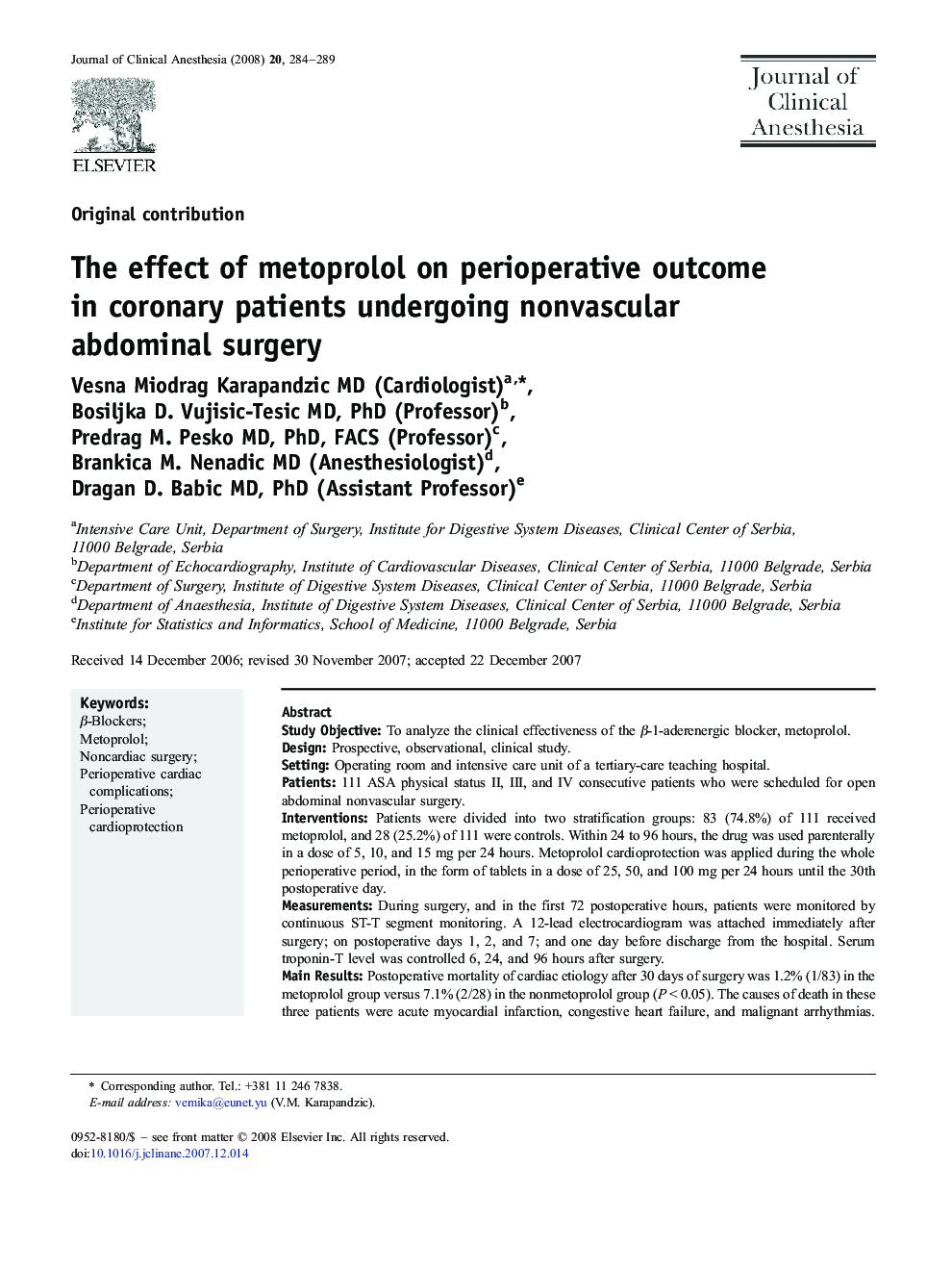| Article ID | Journal | Published Year | Pages | File Type |
|---|---|---|---|---|
| 2763502 | Journal of Clinical Anesthesia | 2008 | 6 Pages |
Study ObjectiveTo analyze the clinical effectiveness of the β-1-aderenergic blocker, metoprolol.DesignProspective, observational, clinical study.SettingOperating room and intensive care unit of a tertiary-care teaching hospital.Patients111 ASA physical status II, III, and IV consecutive patients who were scheduled for open abdominal nonvascular surgery.InterventionsPatients were divided into two stratification groups: 83 (74.8%) of 111 received metoprolol, and 28 (25.2%) of 111 were controls. Within 24 to 96 hours, the drug was used parenterally in a dose of 5, 10, and 15 mg per 24 hours. Metoprolol cardioprotection was applied during the whole perioperative period, in the form of tablets in a dose of 25, 50, and 100 mg per 24 hours until the 30th postoperative day.MeasurementsDuring surgery, and in the first 72 postoperative hours, patients were monitored by continuous ST-T segment monitoring. A 12-lead electrocardiogram was attached immediately after surgery; on postoperative days 1, 2, and 7; and one day before discharge from the hospital. Serum troponin-T level was controlled 6, 24, and 96 hours after surgery.Main ResultsPostoperative mortality of cardiac etiology after 30 days of surgery was 1.2% (1/83) in the metoprolol group versus 7.1% (2/28) in the nonmetoprolol group (P < 0.05). The causes of death in these three patients were acute myocardial infarction, congestive heart failure, and malignant arrhythmias.ConclusionsPerioperative cardioprotection significantly reduced mortality until postoperative day 30 in patients having open abdominal nonvascular surgery with general anesthesia.
